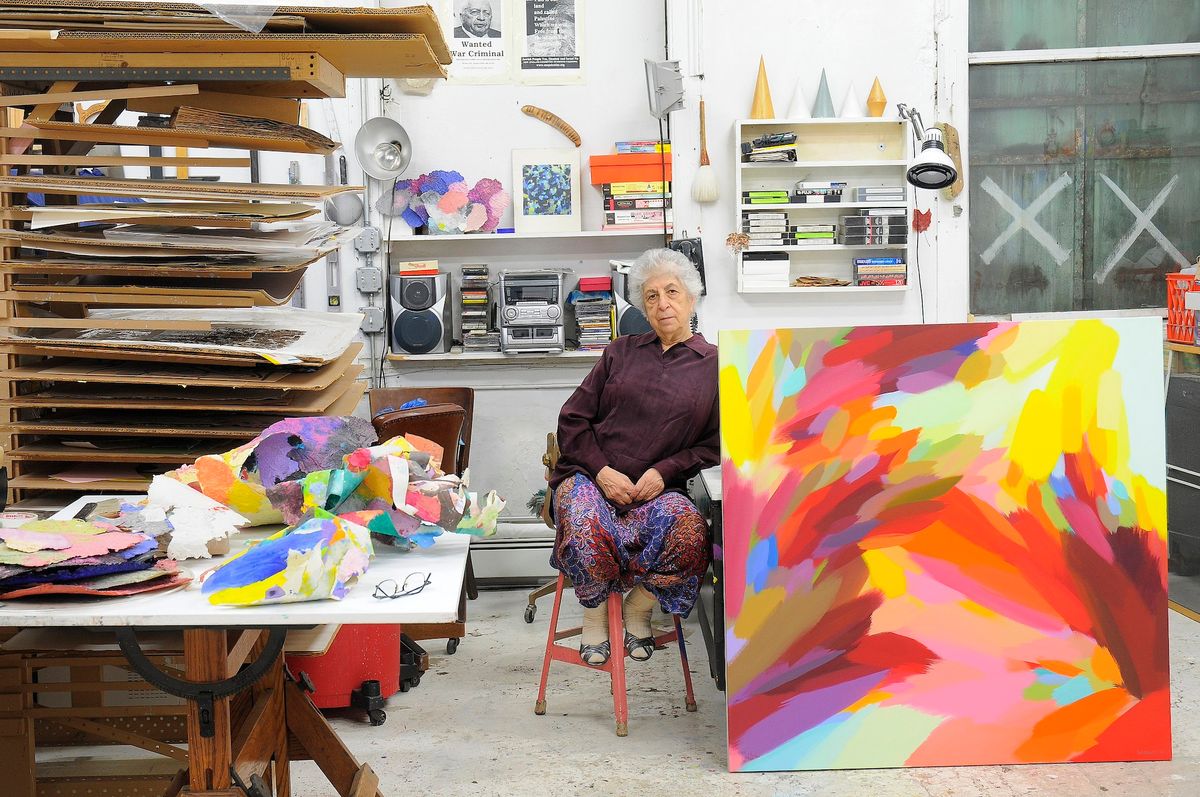A US museum’s decision to cancel a Palestinian artist’s retrospective, amid tensions over the ongoing Israel-Hamas war, has sparked controversy and calls for the show to go on. A petition urging Indiana University at Bloomington’s Eskenazi Museum of Art (EMA) to reinstate the cancelled retrospective of Palestinian artist Samia Halaby has gained more than 8,000signatures as of this writing.
The EMA’s exhibition, Centers of Energy, which would have been the first major retrospective of the artist’s work in the US, was planned over more than three years and cancelled in late December due to “safety concerns”. The petition’s author, Madison Gordon, the grandniece of the artist and a trustee of her foundation, specifically called on Indiana University president Pamela Whitten to reverse the cancellation.
Citing the exhibition’s substantial catalogue, inclusion of early Halaby works from the EMA’s collection and privately-owned works loaned to the museum, the petition describes disappointment that the Indiana University community would be “deprived of an important exhibition of contemporary art and first-rate cultural experience”. No other exhibitions have been programmed at the EMA during the six-month scheduled run of Centers of Energy.
In a statement to Hyperallergic regarding the cancellation of Halaby’s retrospective, Indiana University said “academic leaders and campus officials cancelled the exhibit due to concerns about guaranteeing the integrity of the exhibit for its duration”. The petition claims that the university provided “no evidence of threats to the artwork or the campus”, or to Halaby herself, who stated: “Clearly the intent is to suppress Palestinian voices at this very time. If that were not their intention why not accept my offer to meet with them and clear matters? Why did they not speak up during the three long years of preparation?”
Halaby, who earned her master’s degree from Indiana University and subsequently taught there, has challenged the university’s decision directly. She wrote two letters to Whitten requesting Centers of Energy’s reinstatement due to the abrupt nature of the cancellation, as well as the years of collaborative work required to produce the exhibition.
Multiple other universities have upheld their commitments to present elements of Halaby’s exhibition. The University of Chicago Press will publish the accompanying catalogue, a volume of more than 200 pages, in March. Michigan State University’s Broad Art Museum, which helped develop the Indiana University exhibition as half of a two-part showcase, still plans to open its Halaby exhibition, Eye Witness, in June, according to The New York Times.
The cancellation of Halaby's exhibition comes amid heightened sensitivities around the art world and beyond brought on by the Israel-Hamas war, and as antisemitic, anti-Arab and Islamophobic incidents surge.


